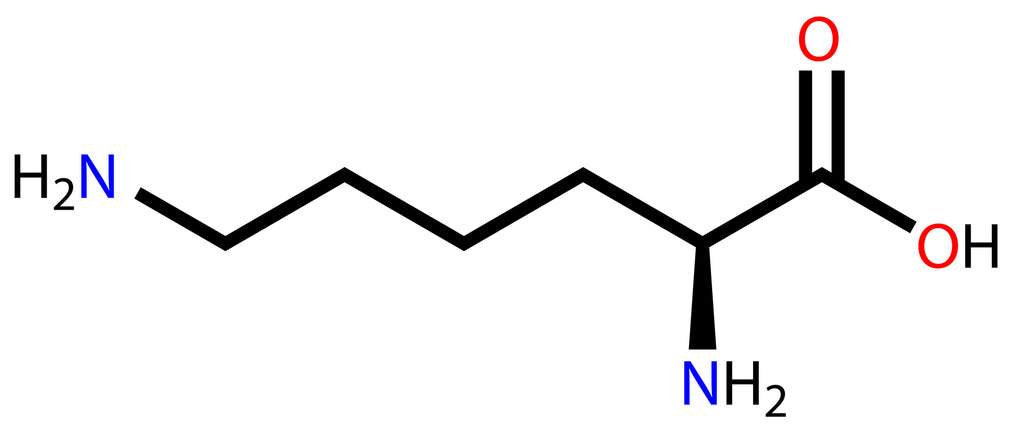If you're like most people, the emergence of tiny, fluid-filled blisters on and around your lips is probably an unwelcome sight. They're painful–and worse, unsightly. And to make matters worse, these blisters can camp on your face for 2 weeks or longer. Imagine having to go for an interview, date, or client meeting when they make an appearance! The prospect is so brutal that it might even be considered emotional torture! This then begs the question: Just what are these bumps? And perhaps, most importantly, is there anything you can do to hurry the disappearance of these pesky fluid-filled blisters?
Well, you know what you have to do to get the answers: continue reading.
What Are Cold Sores?

To answer the first question (i.e. what the blisters are), it would be cold sores. As you're probably familiar with, cold sores are angry, red, fluid-filled blisters that form near the mouth or on other areas of the mouth. They tend to clump together in patches.
What Causes Cold Sores?

As shocking as this may be, the herpes simplex virus causes cold sores (1). In case you're wondering… No, just because you have cold sores doesn't necessarily mean that you have genital herpes. And that's because there are 2 strains of the herpes simplex virus, HSV-1 and HSV-2 (2, 3). Typically, HSV-1 causes the cold sores you’re well-acquainted with, while HSV-2 causes issues below the belt (i.e. painful lesions around the vulva, cervix, anus, and penis).
Before you feel bad about catching the herpes simplex virus, here’s a statistic that may make you feel better: roughly 90% of adults globally test positive for the virus that causes cold sores. Studies indicate that most individuals are infected in childhood–typically due to sharing utensils with infected family members or close contact with infected individuals in situations like daycare.
Can Cold Sores Be Cured?

While this might not be something you wanted to hear, the truth is that once you're infected with the herpes virus, it never goes away. The virus remains dormant in your nerve cells.
Every so often, the virus can be activated by certain triggers–resulting in an outbreak of cold sores. These triggers differ from person to person but can include sunlight, fatigue, cuts to the affected area, and menstruation in women. That said, while core sores can be unavoidable, they can still be managed (thankfully). You can use a few natural home remedies to calm–or even shorten–the duration of a cold sore outbreak. More details below.
Natural Cold Sore Remedies
#1 – Vitamin C

Vitamin C–also known as L-ascorbic acid–is an essential vitamin, meaning that your body cannot produce it independently. Getting sufficient amounts of it is crucial; it plays many roles in the human body and has been linked to impressive health benefits. For example, as an antioxidant, vitamin C helps block some of the damage caused by free radicals (i.e. oxidative damage)–in turn, minimizing the ill effects of various chronic diseases, including heart disease, diabetes, and even premature aging (4).
And perhaps most relevant to the topic on hand is that there is some evidence that vitamin C may help treat and prevent cold sores (5). So, consider upping your intakes of vitamin C-infused fruits and vegetables like oranges, strawberries, and bell peppers. Vitamin C supplements are also viable options.
#2 – Zinc
Now, you may be thinking: 'Why Zinc?' Well, good question. And the answer is really that zinc is a nutrient that your body needs to stay healthy. It is the micronutrient that helps your immune system to fight off invading bacteria and viruses–including the HSV-1, which is responsible for the painful fluid-filled blisters around your mouth. Several small studies have shown that taking oral zinc supplements may help reduce the duration of symptoms and even prevent outbreaks (6).
Zinc is not only effective for cold sores treatment when ingested too. As it turns out, zinc can also help shorten the duration of cold sores when applied topically; in a 2001 study, cold sores treated with zinc oxide cream went away, on average, one-and-a-half days sooner than those treated with placebo (7).
#3 – Lysine

Lysine is an amino acid essential for human health–it aids in calcium absorption and collagen formation. And, perhaps most impressively, it's been shown to help slow down or prevent the growth of the HSV-1, which is responsible for cold sores. How does it do so? Well, it's all because HSV-1 requires arginine–another amino acid–to replicate. Because lysine helps block the absorption of arginine, it indirectly hinders the HSV-1 replication process. There's even evidence of this. According to a 1987 study, supplementing with lysine tablets can reduce the frequency of herpes simplex virus outbreaks and their severity (8). Lysine can also help cut down on healing time!
#4 – Propolis

Take a look at any anti-inflammatory beauty products available, and you'd be hard-pressed to find one that doesn't contain this ingredient: propolis. This is a resin material that bees collect from botanicals and use to seal crevices in their beehives. Surprisingly, propolis appears to provide protective effects from some bacteria, fungi, and even viruses. In fact, research has shown that this bee-produced compound can help prevent the herpes simplex virus from replicating (9). Pretty impressive, right?
#5 – Elderberry

Elderberry is one of the most commonly used traditional medicinal plants globally. And one of its most heralded health benefits is its ability to exert antiviral effects (10, 11). It’s able to do so because these tart fruits contain hemagglutinin protein, which has been shown to inhibit a virus’ capability to replicate. Thus, preventing the virus from causing an infection in the first place. Better yet, elderberries have been shown to help support the immune system. That means it can help your body better fight off the HSV-1 (12).
And so, as you can imagine, elderberries would definitely be of immense use when it comes to reducing the severity and even preventing the outbreak of cold sores.
#6 – Echinacea Purpurea

Don’t worry if you felt a little overwhelmed by the name of this natural cold sore remedy. The truth is that it has a simpler name: purple coneflower. And how does this pretty flower, which belongs in the daisy family, help with cold sores? Well, it can be traced back to its beneficial effects on the immune system. Several studies have consistently shown that the purple coneflower can help the immune system combat infections and viruses (like the HSV-1)–which would, in turn, promote quicker recovery (13, 14, 15). Not to mention, prevent you from succumbing to a cold sore flare-up in the first place.
#7 – Monolaurin
For those unaware, monolaurin can sound like a foreign, complex term. But that couldn’t be further from the truth, as it’s a naturally-occurring fat present in both coconut oil and breast milk. And while this might surprise you, many people take monolaurin supplements to encourage immune health. But… is monolaurin beneficial for the health–and cold sore management? As it turns out, yes! Research indicates that monolaurin can prevent viruses (e.g., HSV-1) from attaching and entering host cells, stopping infection, and replication (16, 17, 18, 19).
#8 – Lemon Balm
While you may know lemon balm as an herb in the mint family that’s used for culinary purposes (e.g. teas, meat marination, and jams), the truth is that it’s so much more than that. To be more specific, according to research, lemon balm is known to also exert antiviral abilities–in addition to being delicious (20). Lemon balm helps protect against HSV-1. And it's thought to be because of its ability to prevent the virus from penetrating the host cell, preventing infection (21). You don’t only have to ingest it, either. Studies have also found that topical application of lemon balm oil on cold sores can help reduce healing time and soothe some of the symptoms of cold sores (22).
#9 – Licorice Root

Licorice root, which comes from the root of the licorice plant, has long been used to treat various ailments; it has been used in traditional medicine to soothe an upset stomach, lower inflammation, and even treat upper respiratory problems. Today, though, licorice root is more studied for its antiviral and antibacterial effects (23, 24). Its antibacterial properties help inhibit bacterial function, while its antiviral properties help prevent viruses–such as the HSV-1–from replicating. Moreover, research also suggests that licorice root strengthens the immune system and may even fight off the herpes virus that causes cold sores (25, 26).
An All-In-One Supplement That Combats Cold Sores

By now, it must be pretty clear to you that a compromised immune system hampers your ability to fight off the herpes simplex virus. And that means frequent cold sores flare-ups. Don't want to deal with that? Then Dr. Danielle's Cold Sore Assist supplement is a must-have in your cabinet. It harnesses and combines the potent antiviral ingredients listed above into a convenient pill, so you never have to worry about waking up to cold sores on an important day.









1 comment
I recommend!
[Got rid of Hsv-2],
Herbal Remedy for (HSV),🌿….